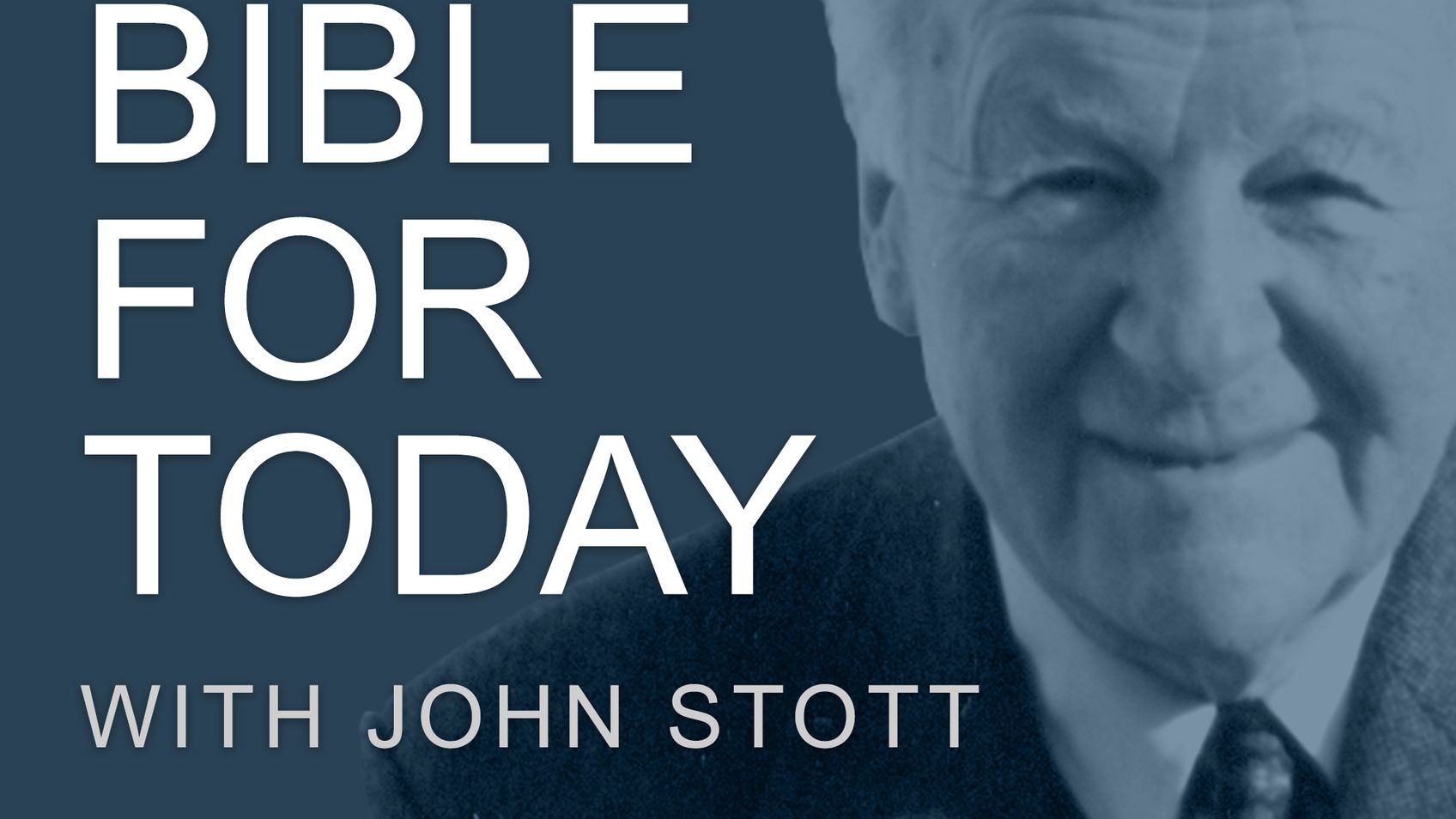Jesus, The Saviour of the World - Part 2
July 25, 2021

The Bible for Today with John StottPremier
John Stott shows us that the message of Luke's gospel is good news of salvation, affecting both our past - through forgiveness of sins, and our future - by the giving of the Holy Spirit to indwell us every day.
More From The Bible for Today with John Stott

All By Myself - Part 1
The Bible for Today with John Stott
August 1, 2021
John Stott examines the two statements of scripture: "It is not good for the man to be alone" Gen.1:18 and "It is good for a man not to marry" 1 Cor.7

All By Myself - Part 2
The Bible for Today with John Stott
August 8, 2021
John Stott shows us that if marriage is seen as a blessing, singleness should not be seen as a curse. He warns against believing that singleness makes

The Mind - Part 1
The Bible for Today with John Stott
August 15, 2021
John Stott explains that the mind is the central citadel of the human personality that directs our human operations. He sets God's purpose for us to t

Jesus, The Saviour of the World - Part 1
The Bible for Today with John Stott
July 18, 2021
John Stott gives one aspect of the fourfold portrait of Christ as painted by Dr. Luke in his gospel record. He shows that no one is untouchable by Chr

God of Love - Part 2
The Bible for Today with John Stott
July 11, 2021
John Stott shows us that if we have been born again we will manifest the nature of the God who has begotten us again and we should exhibit the love of

God of Love - Part 1
The Bible for Today with John Stott
July 4, 2021
John Stott explains why we will never truly know what it is to be a human being unless we know the God who made us and why there is a huge difference
More on OpenTheo

E. Calvin Beisner: Climate and Energy Policy
Knight & Rose Show
January 4, 2026
Wintery Knight and Desert Rose welcome Dr. E. Calvin Beisner to discuss climate and energy policy. They explore Biblical dominion and stewardship, con

Does God Really Need a “Pound of Flesh” to Forgive Sins?
#STRask
January 12, 2026
Questions about how to answer the challenge that God doesn’t need a “pound of flesh” to forgive sins but can simply forgive, and whether the claim in

What Is the Role of the Holy Spirit in Our Lives if He Doesn’t Give Us Instructions?
#STRask
February 23, 2026
Questions about the role of the Holy Spirit in our lives, advice for someone who believes in God intellectually but struggles to understand how to hav

How Should I Respond to an LGBTQ Person Who Says He Feels Good About Who He Is?
#STRask
March 2, 2026
Questions about responding to an LGBTQ person who says he feels good about who he is, and whether—since we all have sin in our life we don’t consider

Can You Provide Verifiable, Non-Religious Evidence That a Supernatural Jesus Existed?
#STRask
November 10, 2025
Question about providing verifiable, non-religious evidence that a supernatural Jesus existed.
* I am an atheist and militantly anti-god-belief. Ho

Shouldn’t I Be Praying for My Soul Rather Than for Material Things?
#STRask
February 2, 2026
Questions about whether we should be praying for our souls rather than for material things, why we need to pray about decisions, whether the devil can

Christmas Cranks and Christmas Blessings with Justin Taylor and Collin Hansen
Life and Books and Everything
December 17, 2025
If you are looking for a podcast where three friends talk about whatever they want to talk about and ramble on about sports, books, and grievances, th

Conservatism and Religious Freedom with John Wilsey
Life and Books and Everything
October 27, 2025
What is conservatism? And why does it go hand in hand with religious freedom? How should we think about the American experiment of ordered liberty? Ha

The Making of the American Mind with Matthew Spalding
Life and Books and Everything
February 2, 2026
The United States is unique in how much attention it pays to its founding, its founders, and its founding documents. Arguably, the most famous and mos

What Is Wrong with Wokeness? With Neil Shenvi
Life and Books and Everything
January 19, 2026
In this timely interview, Kevin talks to Neil Shenvi about his new book (co-authored with Pat Sawyer), entitled “Post Woke: Asserting a Biblical Visio

What Are Some Good Ways to Start a Conversation About God with Family Members?
#STRask
October 30, 2025
Questions about how to start a conversation about God with non-Christian family members, how to keep from becoming emotional when discussing faith iss

Can You Recommend Good Books with More In-Depth Information and Ideas?
#STRask
January 22, 2026
Questions about good books on Christian apologetics, philosophy, and theology with more in-depth information and ideas, and resources to help an intel

Is Greg Placing His Faith in the Wrong Thing?
#STRask
February 12, 2026
Questions about Greg placing his faith in his personal assessment of which truth claims best match reality rather than in the revelation of God in Jes

Is It a Sin to Feel Let Down by God?
#STRask
November 6, 2025
Questions about whether it’s a sin to feel let down by God and whether it would be easier to have a personal relationship with a rock than with a God

Why Do We Say Someone Was Saved on a Particular Date If It Was Part of an Eternal Plan?
#STRask
November 24, 2025
Questions about why we say someone was saved on a particular date if it was part of an eternal plan, the Roman Catholic view of the gospel vs. the Bib
